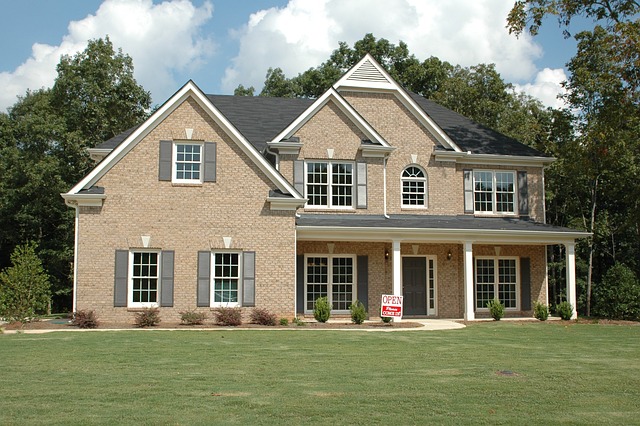In Singapore, Executive Condos (All ECs) offer a unique blend of luxury and affordability with substantial discounts compared to private condos. Navigating legal frameworks including BCA Act, URA regulations, and strata management is crucial for informed decision-making and compliance. Understanding by-laws, property taxes, and evolving environmental regulations is essential for All EC In Singapore owners to ensure a harmonious living environment and effective financial planning.
In the vibrant real estate landscape of Singapore, understanding the legal intricacies of executive condos (ECs) is paramount for buyers and investors. This article navigates the key legal considerations surrounding EC ownership, from initial registration to strata management and dispute resolution. With a focus on all ec in Singapore, we explore building by-laws, tax implications, and future developments, providing essential insights for those considering this game-changer investment option.
- Understanding Executive Condos in Singapore: A Legal Perspective
- Ownership and Registration: Key Legal Requirements
- Building By-laws and Regulations: What Every Buyer Should Know
- Strata Management and Governance: Rights and Responsibilities of Owners
- Common Law Issues: Resolving Disputes in Executive Condo Communities
- Tax Implications for Executive Condo Owners
- Future Developments: Evolving Legal Landscape for All Eco-Condos
Understanding Executive Condos in Singapore: A Legal Perspective

In Singapore, Executive Condos (ECs) are a unique housing segment designed for high-income earners and professionals. From a legal standpoint, understanding ECs involves delving into specific regulations and policies set by the government. These residential properties are typically offered at a substantial discount compared to private condominiums, making them attractive options for buyers seeking both luxury and affordability.
The All EC in Singapore market is regulated by various laws, including the Building and Construction Authority (BCA) Act and relevant urban planning policies. Buyers must navigate these legal frameworks to ensure compliance with regulations related to ownership, resale restrictions, and maintenance standards. Understanding these legal considerations is essential for prospective EC owners to make informed decisions and avoid potential pitfalls in the Singaporean real estate landscape.
Ownership and Registration: Key Legal Requirements

In Singapore, ownership and registration of an Executive Condo (EC) are governed by specific legal requirements that all EC owners must understand. The process begins with acquiring a Certificate of Registration (CR), which confirms legal ownership and is issued by the relevant authority, usually the Urban Redevelopment Authority (URA). This step is crucial as it allows for clear title transfer and ensures all legal rights and obligations are associated with the property.
All ECs in Singapore must be registered within 60 days of completion, making timely registration essential. The CR serves as a public record, enabling transparency in ownership and facilitating easy transactions. It’s worth noting that any changes to the ownership or use of the property require updates to the CR, ensuring continuous compliance with local laws and regulations, particularly for all ECs in Singapore.
Building By-laws and Regulations: What Every Buyer Should Know

When considering an executive condo purchase in Singapore, understanding the building’s by-laws and regulations is paramount. These rules are designed to maintain order, safety, and the overall quality of life within the community. All ECs in Singapore operate under a set of guidelines that cover various aspects, from parking allocations to pet ownership policies. Familiarizing yourself with these by-laws before buying ensures compliance and avoids potential disputes with neighbors or management.
Buyers should review documents like the Condominium By-laws and Rules, which outline specific restrictions and permissions. This includes details on renovations, noise levels, common area usage, and more. Staying informed about these regulations empowers buyers to make informed decisions and promotes harmonious living in the community.
Strata Management and Governance: Rights and Responsibilities of Owners

In Singapore, strata management plays a crucial role in maintaining and governing executive condos (ECs). Owners have both rights and responsibilities within this collective framework. Strata committees, elected by unit owners, oversee various aspects such as common area maintenance, security, and repairs. These committees ensure the smooth operation of ECs, reflecting the all-encompassing nature of strata governance in Singapore.
Unit owners are entitled to enjoy shared facilities like pools, gyms, and parks, while also having a say in decision-making processes. They must comply with rules and regulations set by the Strata Management Company (SMC) and attend general meetings to cast their votes. This democratic approach fosters a sense of community and ensures that ECs remain well-managed and desirable assets for all residents across All EC In Singapore.
Common Law Issues: Resolving Disputes in Executive Condo Communities

In Singapore, where All EC (Executive Condos) are governed by both statutory laws and common law principles, resolving disputes within these communities requires a nuanced understanding of both. Common law issues often arise in EC management, from disagreements on maintenance responsibilities to conflicts over common area usage. These disputes can be particularly complex given the diverse backgrounds and expectations of residents.
Mediation and arbitration are commonly employed methods for settling such matters. The Condominium Management (Common Areas) Regulations 2014 provides a framework for managing common areas, but it also allows room for interpretation and negotiation. Common law principles, including equity and good faith, play a significant role in these resolutions, ensuring fairness and justice among residents while fostering harmonious living environments in Singapore’s EC communities.
Tax Implications for Executive Condo Owners

For executive condo owners in Singapore, understanding the tax implications is a crucial aspect of owning an All EC (Executive Condo). As with any property ownership, there are several taxes to be aware of. Property Tax, which is based on the value of the property, is one of the primary considerations. This tax contributes to the overall financial burden and should be factored into annual budget planning.
Additionally, owners may need to consider Stamp Duty Land Tax (SDLT), a levy applied when purchasing or selling real estate in Singapore. The SDLT rates vary depending on the type of property and the transaction value, impacting the overall cost of acquiring or disposing of an executive condo unit. All EC owners should consult with tax professionals to navigate these implications effectively.
Future Developments: Evolving Legal Landscape for All Eco-Condos

As Singapore continues to embrace sustainable living, the future developments in the executive condo market will be closely tied to the evolving legal landscape for all eco-condos. The city-state’s commitment to green initiatives means that new projects will face stricter environmental regulations and building codes designed to minimize impact on the environment. Developers must stay abreast of changes in laws governing energy efficiency, waste management, and sustainable construction practices, ensuring compliance from the design phase onwards.
The legal considerations for All EC in Singapore are set to become even more intricate as the country pushes towards a greener future. This includes navigating new guidelines for renewable energy integration, water conservation measures, and sustainable materials usage. While these changes present challenges, they also offer opportunities for innovation among developers and architects. Staying ahead of regulatory trends will be key to creating executive condos that meet the high standards of both residents and environmental advocates.
Understanding the legal framework surrounding executive condos in Singapore is essential for both buyers and investors. From ownership registration to strata management, each aspect plays a crucial role in ensuring a harmonious living environment. As the legal landscape evolves, especially with the focus on all ec-condos, staying informed about these considerations is vital. By navigating these legal intricacies, residents can ensure their rights are protected, fostering a sustainable and thriving community for all.
